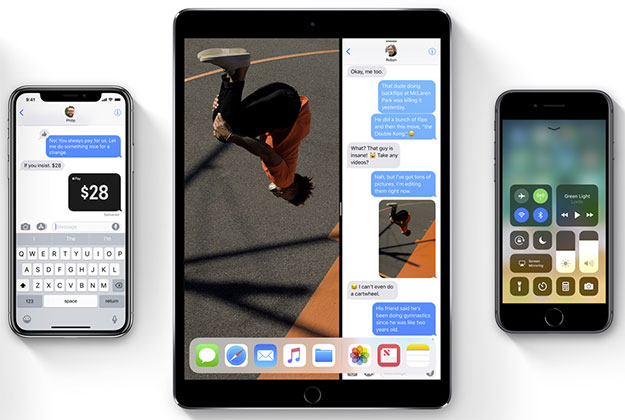iOS 11 Already Surpasses 44 Percent Adoption, Overtakes iOS 10 Install Base

We are not trying to spark of war of words between iOS and Android users, but when it comes to platform fragmentation, it does not really exist in the iPhone community. What is equally remarkable, however, is how quickly iPhone owners adopt major iOS updates. According to the latest data from Mixpanel, iOS 11 has found its way onto around half of all iPhone (and presumably iPad) devices in less than a month.
The data trend shows iOS 11 and iOS 10 both bouncing around the 44 percent, but at its peak earlier today, iOS 11 adoption reached 49.28 percent, versus 46.58 percent for iOS 10, and just 4.15 percent for all other versions of Apple's mobile operating system. That is good news for developers, who can comfortably focus on optimizations for iOS 11 knowing that half (and climbing) of all iPhone and iPad users will benefit.

Source: Mixpanel
As good as the adoption rate is, iOS 11 is moving slower onto new devices than its predecessor did a year ago. After iOS 10 launched, the adoption rate skyrocketed to over 66 percent in less than a month, landing on more than a third of devices within the first several weeks. Comparatively, iOS 11's adoption rate is around 20 percent lower in roughly the same time span since its launch.
The comparatively slower adoption rate likely has to do with users waiting on the iPhone X to release. Though Apple announced new iPhone 8 and iPhone 8 Plus handsets recently, it also unveiled an iPhone X model with all-front OLED display. Unlike the iPhone 8 models, the iPhone X is not yet available. When it does release to retail, it will bump up the adoption rate of iOS 11 simply by adding more users into the fold, as it will ship with the latest version of iOS.
Adoption rates aside, it is a good time for both iOS and Android users. Both have new OSes to play with, along with the new features they introduce, and both also have access to new high-end smartphones—for Android users, Samsung's Galaxy Note 8 is a hot seller, Google introduced its Pixel 2 and Pixel 2 XL, and LG has a new flagship in the V30.

